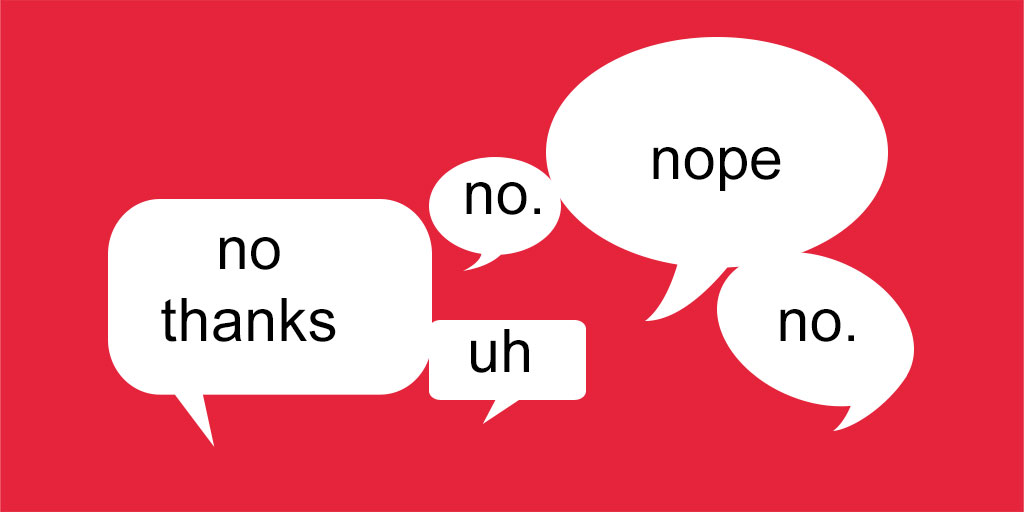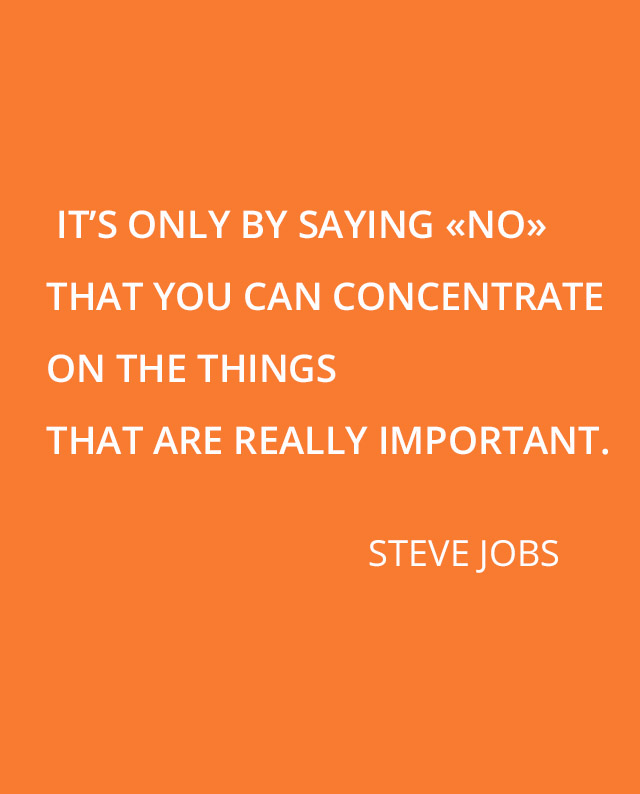Do Fewer things, better : 7 tips for you
October 15, 2019
Stay focused!
1. Decide on what matters the most.
2. Say no to everything else.
3. When something falls in the gray area, re-read #2.
Of course, that’s easier said than done. I fail at it all the time — but I’m getting better. Here are 7 tips learned from years of practice:
1. When making your list, start with a low-level of abstraction.
Resist the temptation to make your list really “high-level”. As a somewhat extreme example, one of the things on your priority list shouldn’t be “Become financially secure”. That’s so broad, that you’d be able to rationalize too many things to satisfy that filter. Try to be specific enough that the number of things that “fit” is a manageable number — let’s say 3–5.. If you find yourself taking on too much (which you probably do), refine your filters and move to a lower-level of abstraction.
2. Forgive yourself for having to say “no” to things not on your “fewer things” list.
3. Remember that every time you say “no” to something you might have said “yes” to, it frees up time to focus on the things that matter.
The more time you spend on the things that matter, the better you get at them.
Let me give you an example: Let’s say you say “no” to some project/request/idea that would have “only” taken a few hours a month, because it didn’t make the “few things that matter” list. And, let’s say that one of the things that does matter to you is being able to better communicate your message to the world — via public speaking. Those few hours you “saved” can be spent on getting your message out. More speaking gigs, more people influenced. But wait! That’s not all! Not only are you able to do some more public speaking, because you’re going to spend more time on it, you’re going to get better at it. And, because you get better at it, you’re going to get more frequent speaking invites. With larger audiences. And have more influence once you’re on stage. You’re building leverage by getting better and better at the thing that matters. And, it’s amazing how much better you will get, once you decide on only a few things to get better at.
By the way, the reverse of this is true to0: Everytime you say “yes” to something, you’re saying “no” to something else. Often, you’re saying “no” to something more important. But, in the heat of the moment, it’s easy to say yes. It’s also guilt-free to say yes.
Teaching myself to say “no” when I know I shouldn’t be saying yes is one of the most important things I’ve learned. It (literally) changed my life.
4. Fight the FOMO (Fear Of Missing Out) emotion.
It’s a killer. We all have it to varying degrees. This fear that if we don’t say “yes” to something, we’re going to miss out on some big opportunity, small joy or new connection. Yes, sometimes you will miss out, but that’s OK. Life goes on. On average, you will be better off skipping some things, instead of trying to do too much.
5. Be super-careful with recurring commitments.
If you are going to occasionally say “yes” to things that are not on your “things that matter most” list, be super-careful that they’re not a recurring commitment. A one-time commitment of 4 hours is much less dangerous than a monthly hourly commitment. The way I think about this: When I say “yes” to a recurring commitment, I’m effectively saying “yes’ multiple times (for as long as I think I’m going to be in that commitment).
6. As painful as it is, prune your prior commitments.
You’ve said yes to a few things that you now sort of regret. Get yourself out of those. Be respectful, be, understanding and be fair — but be disciplined and true to yourself. And just because you committed to something last year with no real “expiration date” doesn’t mean you have to keep doing it forever. Things change. On a related note: For things that don’t have an expiration date, remember that it’s going to be just as painful to prune later as it is now — why not give yourself the gift of some time back sooner?
7. Try to solve for outcome, not activity.
Figure out what you want to happen (whether it be a commercial interest or a philanthropic one), and figure out how to best create impact. Usually, optimal outcomes are not achieved by saying “yes” to a bunch of “good” activities.



